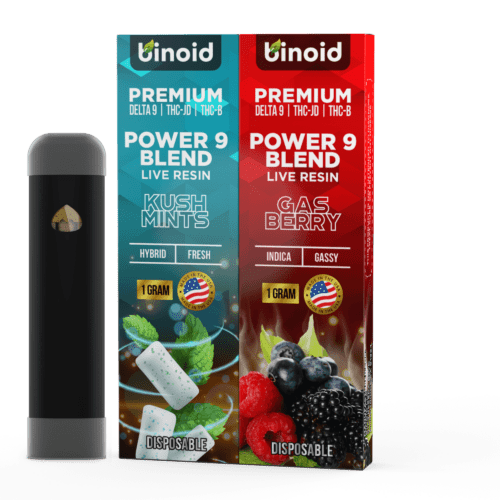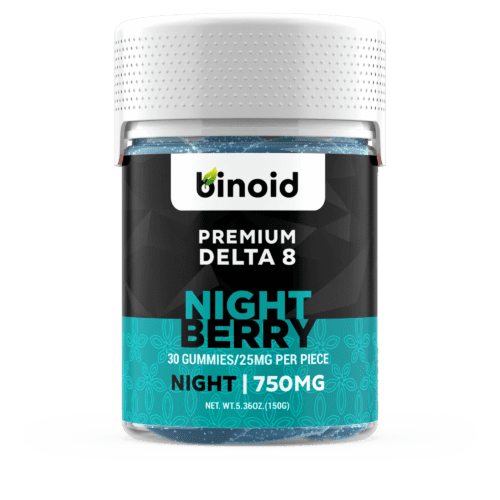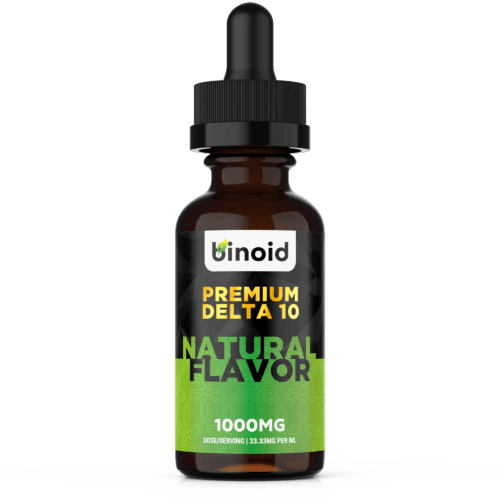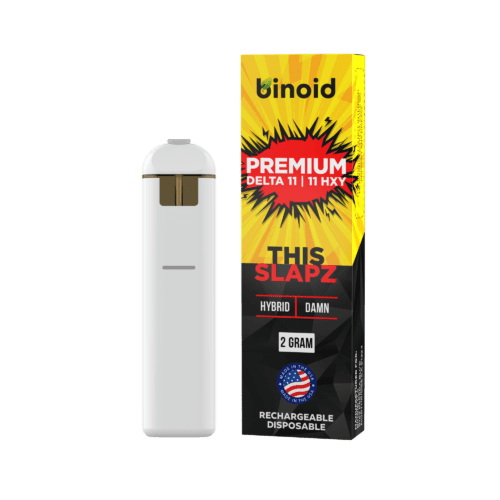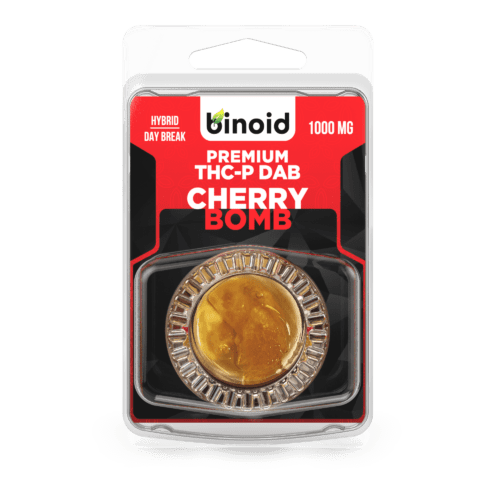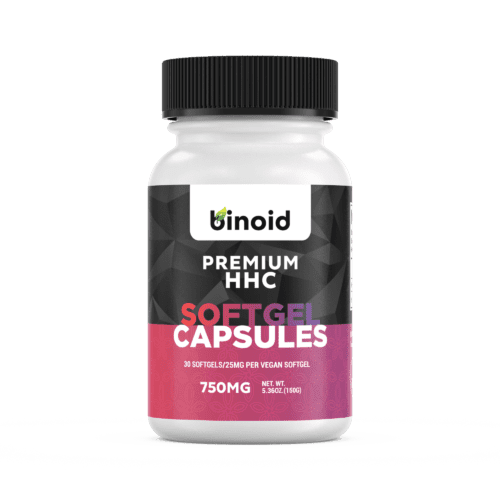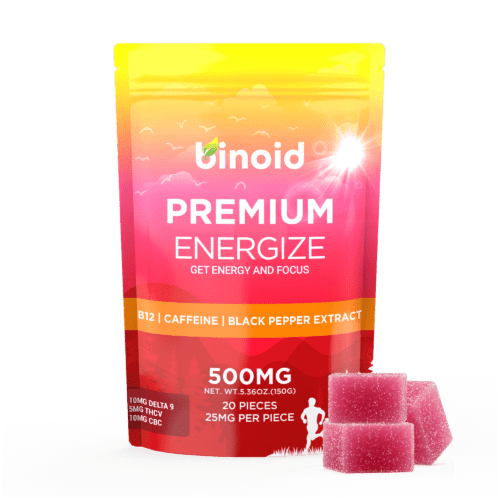
How To Know if You Have an Endocannabinoid Deficiency
Binoid has, and continues, to go into a great deal about the relationship between cannabinoids and the body’s endocannabinoid system (ECS). But, one thing that we don’t talk about as much is endocannabinoid deficiency – in other words, an inability to produce enough cannabinoids on our own, which many experts believe is a great reason to take phytocannabinoids, like the cannabinoids found in the hemp plant.
Endocannabinoid deficiency may explain a lot when it comes to why hemp’s compounds are so often beneficial to us. But, is there a way to know if you actually are deficient in endocannabinoids?
To Buy THC-H Products Click Here
We’re Still Learning About the Endocannabinoid System
Endocannabinoids are cannabinoids produced within the body, rather than sourced from cannabis. These cannabinoids basically fulfill the same functions as the ones outside of the body, only they aren’t psychoactive. Endocannabinoids keep the body in check. How? By working with cannabinoid receptors (CB1 and CB2) to regulate all kinds of important processes in the body, ranging from inflammation to stress.
These receptors then respond with two main endocannabinoids that the body strictly generates when need be – anandamide (AEA) and 2-arachidonoylglycerol (2-AG). Both origin-based compounds can vitalize the CB receptors by binding to them and transmitting a signal that brings about an effect best tailored to “fix” the physiological imbalance.
After the endocannabinoids completed their tasks, the ECS utilizes two varieties of metabolic enzymes – fatty acid amide hydrolase (FAAH) and monoacylglycerol lipase (MAGL) – that break down the endogenous cannabinoids. Both metabolic compounds belong to the class of serine hydrolase enzymes that degenerates substances by dividing particular bonds.
Now, while we know a great deal about the endocannabinoid system, still, it’s important to remember that the ECS was only discovered in the 1990s – basically 30 years ago, give or take. So, essentially, there’s still a lot to learn about it, and the info we can offer presently is based on only the earliest stages of research, as we continue uncovering its fascinating relationship to cannabinoids (CBD, Delta 8 THC, Delta 9 THC, Delta 10 THC, THC-B, THC-H, THC-P, THCV, HHC, HHC-O, HHC-P, etc.) like the ones sold here at Binoid.
What Exactly Then is an Endocannabinoid Deficiency?
Initially put forward way back in 2001 by Dr. Ethan Russo, the clinical endocannabinoid deficiency (CECD) theory implies that due to a number of factors, the body results in an endocannabinoid system deficiency. It’s a theory rooted on neurotransmitter deficiencies that can cause greater underlying issues. In fact, there was one particular analysis published in 2004 from Dr. Russo, as he dives deeper into the concept of CECD and details how by stating this:
“Migraine, fibromyalgia, IBS and related conditions display common clinical, biochemical and pathophysiological patterns that suggest an underlying clinical endocannabinoid deficiency…”
This proposal hints that through a lack of genuine endocannabinoid production, or an endocannabinoid deficiency, further issues could develop. Since the ECS can be a critical part of numerous bodily functions, including sleep, mood, clarity, etc., endocannabinoid deficiency can stir up problems that result in lingering issues.
Dr. Russo’s endocannabinoid deficiency syndrome research displays how any alterations that affect varying levels of endocannabinoids – either via the destruction and collapse in production or the weakening and strengthening of cannabinoid receptors – can influence its regulatory capabilities for multiple functions.
What are the Main Causes Endocannabinoid Deficiency?
The endocannabinoid system is considered the largest network of neurotransmitters in your body – responsible for regulating several important functions. But when signals from the ECS begin to transmit at improper levels, it can result in endocannabinoid deficiency syndrome. With that said, an endocannabinoid deficiency can happen in some unique ways such as:
- Lack of cannabinoid receptors.
- An overabundance of metabolic enzymes.
- Synthesizing insufficient endocannabinoids.
- Not enough action between endocannabinoids and CB receptors.
Signs You Might Have an Endocannabinoid Deficiency
Since the endocannabinoid system is designed to keep all of the body’s processes in line, by promoting homeostasis through the interaction between cannabinoids and their receptors, the question now is, what can stop you from having a functional ECS, in which the body is consistently producing endocannabinoids, and/or using the ones found in hemp to the fullest potential? Currently, there are a few key things to look for, according to experts.
-
Product on sale
 Delta 11 THC / 11 HXY Disposable Vape – 2 Gram$32.99
Delta 11 THC / 11 HXY Disposable Vape – 2 Gram$32.99$59.99 -
Product on sale
 THC-P Wax Dabs$29.99
THC-P Wax Dabs$29.99$57.99 -
Product on sale
 HHC Capsules 750MG$30.99
HHC Capsules 750MG$30.99$74.99
Sign #1: A Sleep Schedule That is Out of Whack
How we sleep can offer us a lot of clues into how our endocannabinoid system is working. That’s because cannabinoids seem to impact our sleep – in other words, how easily we fall asleep, how long we stay asleep, when we wake up, and the times during which we are asleep. Endocannabinoids that work with CB1 receptors – particularly anandamide and adenosine – seem to have the strongest part in our sleep. If we’re not producing enough of them though, our sleep can become erratic and unpredictable.
Of course, a lot of variables (some we can control and others that are uncontrollable) can mess up our sleep schedule, including the hours we spend working, the amount of caffeine we consume, and the amount of light we’re exposed to at night. So, if you’re dealing with unusual sleeping patterns, it is important then to consider all possibilities, and see a specialist. However, there is a clear link between endocannabinoid deficiency and poor sleep patterns, so it’s absolutely something to consider.
Sign #2: Excessive Inflammation
Another potential indicator of inadequate endocannabinoid production is excessive inflammation in the body. If you find that your body is hypersensitive in a way that commonly results in inflammation, then your endocannabinoid system may be to blame. Chronic inflammatory symptoms like painful joints, eczema, digestive discomfort, excessive allergy symptoms, and frequent infections can all point to a sign that your body’s inflammatory response is not being properly regulated, and one of the key means for regulating this response comes from endocannabinoids like anandamide, which regulates this critical function of the immune system.
Sign #3: A Feeling of Always Being Stressed Out
Again, anandamide works on CB1 receptors in the nervous system (primarily the brain), to balance neurotransmitters that are involved in our mood and state of mind. One very important function of the endocannabinoid, and the endocannabinoid system overall, is helping us maintain a tolerance and resilience to stress, so that stressful situations don’t cause the body to produce excessive adrenaline. If you feel like you’re constantly in “fight or flight” mode, even when there is no real emergency, then it’s safe to assume that your nervous system is out of whack, and an ECD could be the culprit.
Why Might Cannabinoids Help Those Who Have an Endocannabinoid Deficiency?
If you have an endocannabinoid deficiency, it is critical to prioritize your health from a holistic perspective, doing all you can to support your body’s needs through things like diet, sleep, and stress management. Of course, you also want to have a conversation with your doctor, since they have access to your medical records and have more information they can share with you on this.
Something else, however, that you can do, is incorporate more phytocannabinoids into your daily routine. These hemp-derived cannabinoids facilitate the endocannabinoid system to do its job, and this in turn can help the body create more endocannabinoids to address any potential deficiencies. Phytocannabinoids feed the ECS, thus, strengthening it and potentially alleviating the symptoms above that point to a deficiency-related issue.
Binoid’s goal is always to provide consumers with only the highest-quality cannabinoid-based products. While the majority of our hemp formulas are psychoactive, offering an extremely enjoyable high, it’s important to take notice that these products are also supporting your endocannabinoid system, potentially addressing all kinds of daily concerns right at the source. Check out our cannabinoid-infused products today in order to discover new and exciting ways to supply your ECS a much-needed boost.
To Buy THC-H Products Click Here
-
Product on sale
 Super 7 UFS Disposable Vape – 7 Gram$63.99
Super 7 UFS Disposable Vape – 7 Gram$63.99$89.99 -
Product on sale
 Functional THC Gummies$33.99
Functional THC Gummies$33.99$59.99 -
Product on sale
 THCV + Delta 8 THC Vape Cartridge$28.99
THCV + Delta 8 THC Vape Cartridge$28.99$59.99

